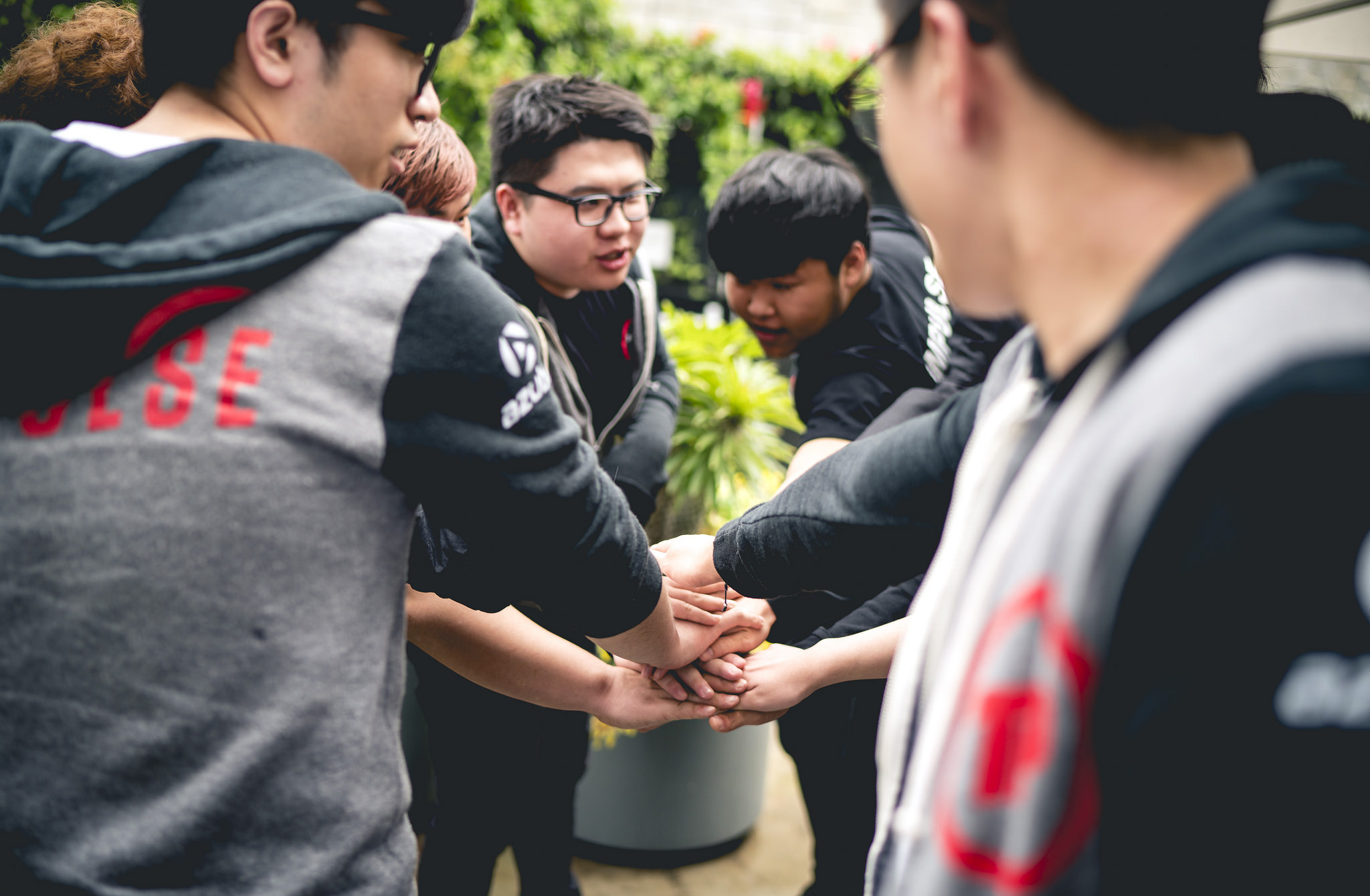Exploring the consequences of last week’s shocking League of Legends bans
What happens to the scene after Riot's ruling?

Photo credit: Riot Games
There are ten teams in the North American League of Legends Championship Series and six teams in the North American Challenger Series. Then, three of them were banned, barred from re-entering the circuit, and forced to sell their spot in ten days. This was unprecedented, and easily the most controversial ruling in League of Legends competitive history. The League world is still recovering from last week’s decision, and the ripples will likely be felt for a long time. Even people who follow League closely are still stunned at what went down and what this means for competitive League.
The tragic tale of Team Impulse
Team Impulse had been hobbling through the spring split with a number of disadvantages—among them that their owner had left the country, providing very little help in his wake, and their translator was left to run the team.
This story begins back with the competitive ban of Yu "XiaoWeiXiao" Xian in the summer of 2015. XiaoWeiXiao was the mid laner for Team Impulse, and not only was he a good mid laner, he was a lovable guy who had attracted a fan base thanks to his personality and cheerful looks. TIP had been playing incredibly well, and they were beginning to look like they could be heading to Worlds. Just before playoffs, when the hype machine was at its loudest, fans saw the update: a competitive ruling for XiaoWeiXiao.
It turned out that the mid laner had a profitable side business—namely, ELO boosting. Not only this, but he was negotiating the sale of a Riot-unlocked LCS account. He was banned for a year when this was discovered, and TIP were forced to go through the playoffs without their mid laner. TIP did not go to Worlds, and in fact, most of their talent fled following the season.
Austin “Gate” Yu was arguably the foundation keeping the team moving; while Cloud9’s Hai gets credit for being a mid, jungle, and support, Gate performed a similar task by switching rapidly from mid lane to support and back to cover the holes in Team Impulse’s leaky hull. His efforts weren’t in vain—Team Impulse survived the split, they didn’t make last place, and they fought through the relegation tournament and won their spot back.
Problem is, no one was being paid. The owner didn’t come back to re-embrace his prodigal son. Instead, he seemed happy to let things continue on as they were... and then Riot got involved. Team Impulse’s tale is not a happy one, but it is arguably the simplest story of the three bans.
The biggest gaming news, reviews and hardware deals
Keep up to date with the most important stories and the best deals, as picked by the PC Gamer team.

The Dragon Knights and the Renegades
Photo credit: Riot Games
As playoffs neared, Team Dragon Knights and the Renegades raised eyebrows by engaging in a massive roster swap. The Renegades gave up Flaresz, Alex Ich, and Trance. The Dragon Knights gave Ninja and Seraph back. The two teams had traded massive chunks of their rosters, and while both teams were stronger for it, it seemed tremendously shady. Riot agreed, and investigated.
Before the Renegades even made it to the LCS, they were run by caster Christopher “MonteCristo” Mykkles and Chris “Doombang” Badawi. Badawi was accused and convicted in the court of Riot for tampering with player rosters, and banned from owning an LCS team for a year. He seemingly stepped back, and all was well... until the new competitive rulings dropped.
Riot claims that there were several complaints levied towards the Renegades throughout the season, and maintained throughout that they needed to keep much of the context of those claims secret to protect the vulnerable. In addition, Riot presented the smoking gun that the Dragon Knights and the Renegades were both being actively run in part by Badawi, and that their relationship as teams were inappropriate. Down came the banhammer—once for the Renegades, once for Team Dragon Knights. Ten days to sell.
So what does this mean?
It’s impossible to sum up the total ramifications of these decisions in this column—a book would likely be a better way to explore exactly what happened and its effects on the League of Legends ecosystem. However, there are a few obvious points that we need to consider:
One, the fact that more than one team is out, combined with the ten day window for sales, means that we’re about to see new organizations in the LCS. This is the best shot to enter competitive League in a long time, and such a chance may never happen again. The question is: are the teams that are going to take REN and TIP’s spot folks who have been watching the scene for a long time, plotting and biding their time... or are we going to see impulse purchases by investors who don’t know how to run a League team? The last thing that the League competitive scene needs is more fairweather investors who are only invested in their team as long as they’re making money.
Two, fifteen League players are suddenly free agents. Where are they going to end up? Players like Alex Ich had a long period of strife in their career before they ended up with their current team. Now they’re tossed back into the free agent pool to find a new home. Some players, like Seraph, had only just started to show their real potential. Will recruiters notice that, or are their runs coming to an end?
Finally, will teams continue to trust Riot when they’ve demonstrated that they’re willing to take such extreme measures? Many large team owners spoke out against Badawi during the first competitive ruling last year... but for the players, it must be alarming to see many of their colleagues out of a job in a flash. That being said, Riot is the company in charge and ultimately players may decide that as long as their job is safe (well, as safe as it can be in esports), things will be okay.
Three teams gone, and ten days to take their spot... The next few days of League are going to be an intense time in this game’s history. Many questions remain about the ruling and its process, but the game will march forward without waiting for answers.
Most Popular

